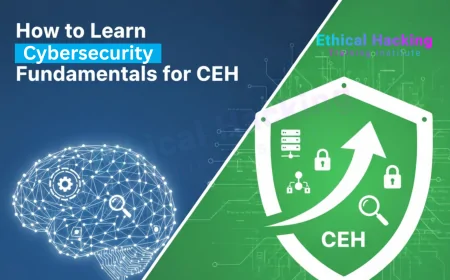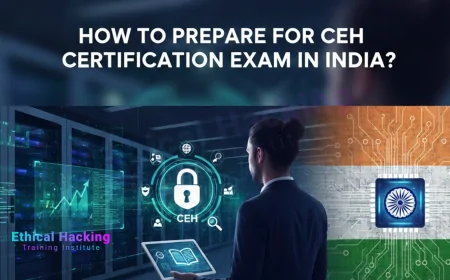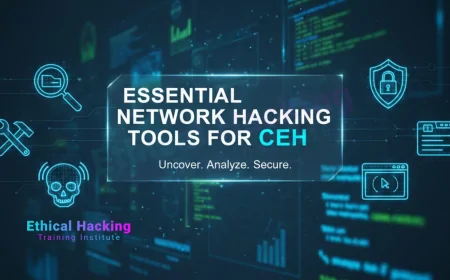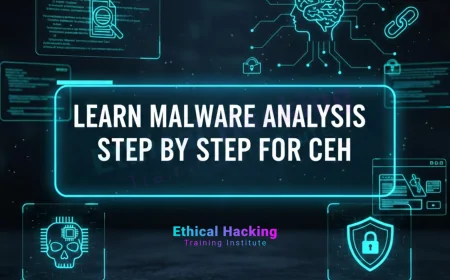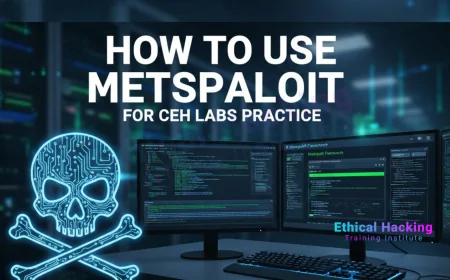How EC Council’s Forensic Investigator Certification Can Boost Your Cybersecurity Career |
Discover how EC-Council’s Certified Forensic Investigator certification can elevate your cybersecurity career. Learn about benefits, skills, roles, salary, and preparation strategies for success in digital forensics.
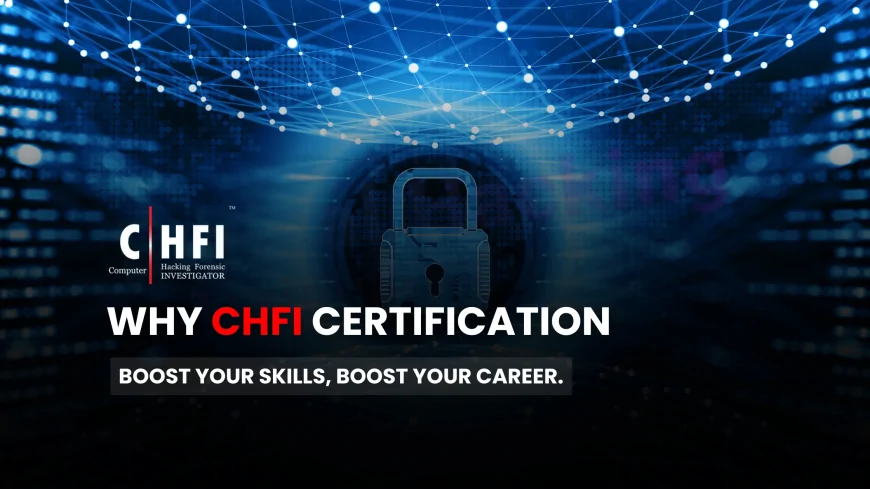
Table of Contents
- Introduction
- What Is EC-Council's Certified Forensic Investigator?
- Why Forensic Investigator Certification Matters in Cybersecurity
- Certification Path: From CHFI to Advanced Tracks
- Core Skills Acquired Through Certification
- Training and Preparation Paths
- Exam Format, Requirements, and Preparation
- Hands-on Labs & Real-world Tools
- Career Impact: Roles & Responsibilities
- Salary Outlook & Market Demand
- Global Recognition & Industry Acceptance
- How It Complements Other Certifications
- Continuing Education & Renewal
- Soft Skills Enhanced by Certification
- Real‑World Case Studies
- Choosing the Right Training Provider
- Return on Investment (ROI)
- Tips for Success in Certification
- Common Mistakes to Avoid
- Frequently Asked Questions (FAQs)
- Conclusion
Introduction
Cybersecurity is no longer just about preventing breaches—it's about investigating and recovering from them. The EC-Council’s Certified Forensic Investigator certification equips professionals with the knowledge to investigate cyber incidents, gather admissible evidence, and support legal proceedings. This comprehensive article explores how earning this credential can significantly boost your cybersecurity career.
What Is EC-Council's Certified Forensic Investigator?
The Certified Forensic Investigator credential from EC-Council (building on CHFI) validates your skills in digital forensics. It certifies your ability to perform forensic analysis on computers, networks, mobile devices, and cloud systems—focusing on lawful evidence collection, analysis, and reporting.
Why Forensic Investigator Certification Matters in Cybersecurity
-
Holistic cybersecurity approach: Enables you to detect, respond, and investigate incidents effectively.
-
Compliance with legal standards: Ensures workflow adheres to frameworks like GDPR, HIPAA, CCPA.
-
Industry demand: Creates high demand for certified professionals in SOCs, law enforcement, consultancies, and enterprises.
-
Career differentiation: Stands out in hiring processes and can propel you into leadership roles.
Certification Path: From CHFI to Advanced Tracks
-
CHFI (Certified Hacking Forensic Investigator) – foundational credential.
-
Certified Forensic Investigator – advanced option with deeper module coverage.
-
Specialty tracks – including cloud forensics, malware analysis, mobile device forensics.
Core Skills Acquired Through Certification
-
Evidence collection and chain-of-custody protocols
-
Disk, file system, memory, and network forensics
-
Malware and mobile device analysis
-
Forensic report writing and legal witness preparation
-
Tool mastery: Autopsy, EnCase, FTK, Wireshark, Volatility, Cellebrite
Training and Preparation Paths
-
Self-paced eLearning with recorded lectures
-
Live Virtual Bootcamps with expert instructors
-
In-person Instructor-led Classes for hands-on labs
-
Corporate Training Bundles including labs, vouchers, mentoring
Ensure the provider is EC-Council authorized and includes exam vouchers and lab access.
Exam Format, Requirements, and Preparation
-
CHFI Exam: 150 MCQs, 4 hours, ~70% passing rate
-
Advanced Forensic Investigator Exam: similar length & format
-
Preparation strategies: follow official training modules, practice labs, use flashcards, join study groups and take mock tests
Hands-on Labs & Real-world Tools
Virtual labs simulate real forensic investigations, including:
-
Disk imaging
-
Network packet capture and analysis
-
Memory forensic extraction
-
Malware reverse engineering
-
Cloud and mobile device investigations
These labs ensure you can carry out forensic tasks under real-work conditions.
Career Impact: Roles & Responsibilities
Certification qualifies you for roles like:
-
Cyber Forensic Analyst
-
Incident Response Specialist
-
SOC Lead or Analyst
-
Cyber Crime Investigator
-
Forensic Consultant
Duties include evidence analysis, incident timeline reconstruction, tool selection, and courtroom testimony.
Salary Outlook & Market Demand
-
US: $90K–$140K/year
-
UK: £50K–£80K/year
-
India: ₹8–20 LPA
The credential adds ~20–40% value to your pay and helps in international hiring opportunities.
Global Recognition & Industry Acceptance
EC-Council is internationally recognized, with accreditation from ANSI and equivalency in major compliance standards, making the certification valid worldwide.
How It Complements Other Certifications
-
With CEH: Ethical hacking skills add offensive insight
-
With CISSP: Enhances security leadership credentials
-
With GCFA/GCIH: Delivers comprehensive investigation mastery
Continuing Education & Renewal
-
Certification valid for 3 years
-
Requires 120 ECE credits earned via webinars, conferences, advanced courses, or professional articles
-
Options include EC-Council events, research publishing, and specialty tracks
Soft Skills Enhanced by Certification
-
Structured thinking and attention to detail
-
Reporting clarity suitable for legal stakeholders
-
Communication and testimony skills
-
Critical analysis and problem-solving
-
Ethical judgment and responsibility
Real‑World Case Studies
Ransomware Attack Investigation
Timeline reconstruction, trace infection source, identify vulnerabilities.
Insider Data Theft
Data export detection, log analysis, chain-of-custody preservation.
Cloud Data Breach
Secure cloud evidence, extract logs, adhere to jurisdictional legal requirements.
Choosing the Right Training Provider
Criteria to evaluate:
-
Accreditation and certification inclusion
-
Quality and recency of lab environments
-
Instructors’ practical experience
-
Batch format and flexibility
-
Job assistance and mentoring
-
Student feedback and pass rates
Return on Investment (ROI)
-
Salary increases and quicker promotions
-
Better job stability and career growth
-
Higher market demand and professional validation
-
Employers value forensic skills in compliance-heavy environments
Tips for Success in Certification
-
Combine theory with daily lab practice
-
Join peer groups to share insights and stay motivated
-
Study official exam blueprints and take mock tests
-
Simulate real-world scenarios in home labs
-
Stay updated on legal and forensic technology trends
Common Mistakes to Avoid
-
Overlooking legal protocol training
-
Neglecting lab practice in favor of theory
-
Limited familiarity with tool suites
-
Ignoring continuous skill improvement
Frequently Asked Questions (FAQs)
1. What is the Certified Forensic Investigator credential from EC-Council?
A: It’s an advanced certification for digital forensic professionals focusing on real-world investigation and evidence handling.
2. How does it build on CHFI?
A: It adds deeper tools training, complex scenario labs, and advanced legal reporting requirements.
3. Who should pursue it?
A: Ideal for SOC analysts, incident responders, forensic specialists, and cybersecurity leaders.
4. What skills will I learn?
A: Disk imaging, network/memory forensics, malware reverse engineering, cloud forensics, and reporting skills.
5. How does the exam work?
A: Typically 150 multiple-choice questions over 4 hours, with a passing threshold around 70%.
6. What’s the cost?
A: $1,500–$3,000 for training, $650–$950 for exams, plus optional lab/practical extras.
7. Can I study online?
A: Yes—EC-Council and other providers offer accredited online and live courses with iLabs.
8. Is lab practice required?
A: Highly recommended for real-world skills and exam success.
9. Will employers value this?
A: Absolutely—especially in incident response, law enforcement, and legal compliance roles.
10. Does it need renewal?
A: Yes, every 3 years with 120 continuing education credits.
11. How long should I prepare?
A: Typically 2–4 months depending on your background and study intensity.
12. What tools are essential?
A: Autopsy, EnCase, FTK, Wireshark, Volatility, Cellebrite for mobile forensics.
13. Can I take it after CHFI?
A: Yes—it’s designed as a next step for CHFI-certified professionals.
14. Are there trial labs?
A: Some providers offer demo access—request trial iLab environments before enrolling.
15. Is writing forensic reports covered?
A: Yes—a major focus of advanced certification training.
16. Can this help me testify in court?
A: Yes—it covers how to present findings clearly and adhere to legal standards.
17. Do labs simulate complex cases?
A: Yes—scenarios include ransomware, data exfiltration, insider compromise, and cloud breaches.
18. How many ECE credits are required?
A: 120 continuing education credits within 3 years of certification.
19. Can employers sponsor this?
A: Many do—especially if your role involves incident response or compliance.
20. What’s the first step?
A: Start with the CHFI certification, gain experience, then advance to the Certified Forensic Investigator track.
Conclusion
Earning EC-Council’s Certified Forensic Investigator credential offers a powerful edge in today’s cybersecurity landscape. By validating your forensic investigation skills—technical, legal, and analytical—it positions you for specialized roles, higher compensation, and lasting career impact. With structured training, consistent practice, and strategic preparation, you can unlock the full potential of this certification.
What's Your Reaction?
 Like
0
Like
0
 Dislike
0
Dislike
0
 Love
0
Love
0
 Funny
0
Funny
0
 Angry
0
Angry
0
 Sad
0
Sad
0
 Wow
0
Wow
0






